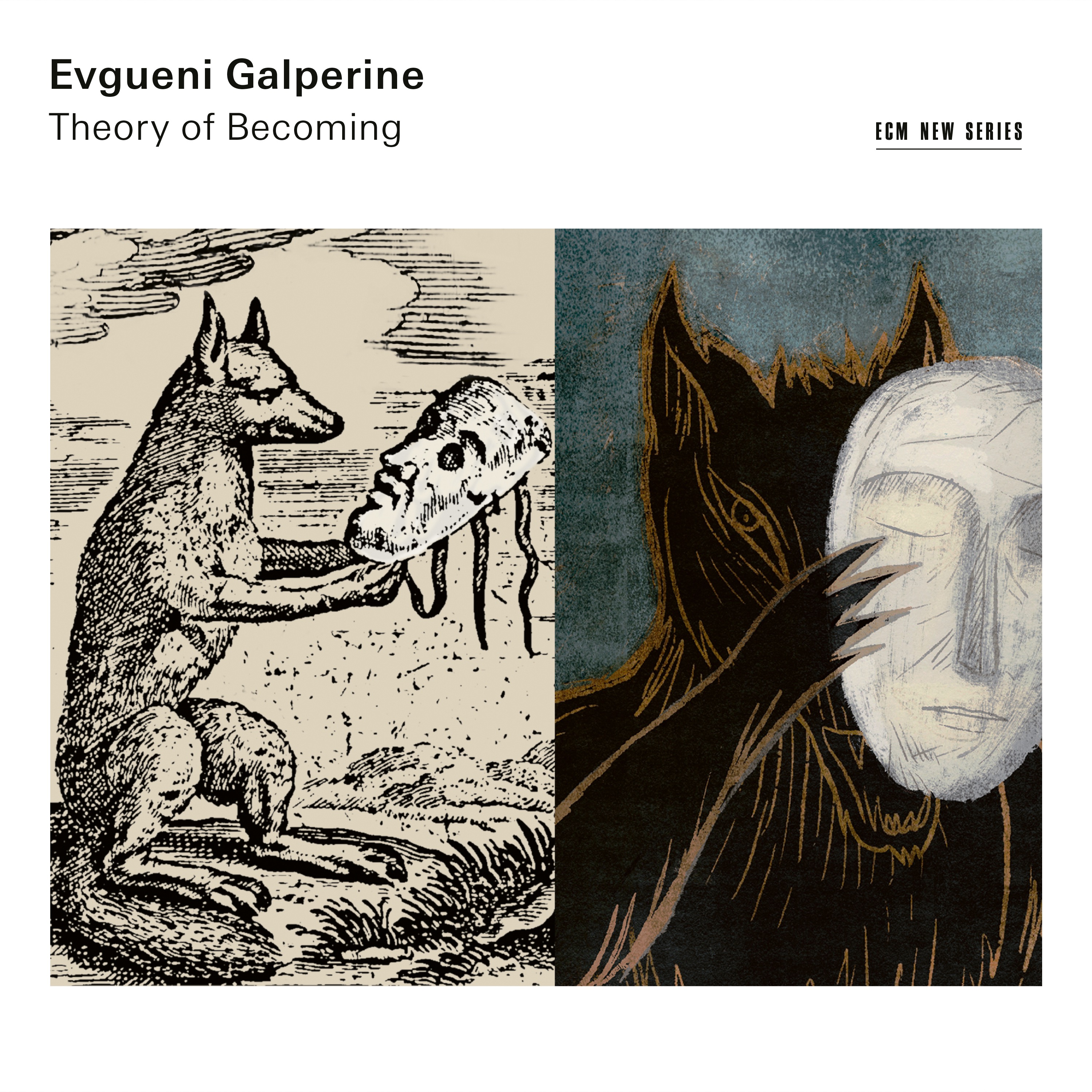All material found in the Press Releases section is provided by parties entirely independent of Musical America, which is not responsible for content.
Press Releases
Oct 21: ECM New Series releases Evgueni Galperine's Theory of Becoming
FOR IMMEDIATE RELEASE
Press contacts: Christina Jensen, Jensen Artists (ECM New Series)
christina@jensenartists.com | 646.536.7864 x1
DL Media (other ECM releases)
Don Lucoff, don@dlmediamusic.com
Jon Solomon, jon@dlmediamusic.com
610.420.8470
Evgueni Galperine: Theory of Becoming
Evgueni Galperine’s ECM New Series Debut is One of the Most Strikingly Original and Evocative Albums of the Year
Galperine, Who is of Russian and Ukrainian Heritage and a Composer of Film Music, is Working with Sound, Texture and Dynamics in New and Powerfully Expressive Ways
ECM New Series 2744
Release date: October 21, 2022
Evgueni Galperine’s ECM New Series debut is one of the most strikingly original and evocative albums of the year. A composer of Russian and Ukrainian heritage, living in Paris since 1990, Galperine is working with sound, texture and dynamics in new and powerfully expressive ways. As he explains, the sound world of Theory of Becoming represents an “augmented reality of acoustic instruments, created from recordings made with real and virtual instruments. The numerous transformations the instruments undergo allow me to capture their acoustic nature while also adding techniques and colours impossible to produce in reality...” Galperine’s compositions address wide-ranging subjects: from the resilience of hope in the face of destruction to meditations on the journey of the soul, as well as travels through space and through the magical forests of Max Ernst’s paintings.
Evgueni Galperine studied composition at the Conservatoire de Paris (CNSM), and also electroacoustic music at the Conservatoire de Boulogne (Paris). As he noted in a recent interview with French writer and journalist Thierry Jousse, “At 25, I already wanted to compose ‘pure music’, but I was up against a system that didn’t offer many choices. I had to be a composer brought up in a post-Boulezian tradition. And as much as I could say that this tradition was not mine, I couldn’t yet define what I wanted to be. My love for cinema and the possibility within the framework of film music of being able to change styles allowed me to seek my language in a fairly free way. Auteur cinema opened up new paths. Film music was a laboratory that allowed me to consider forms that were not related to cinema.” Conservatoire de Boulogne
In 2017, when Galperine was ready to recommit to contemporary composition – and to begin work on Theory of Becoming - he was approached by Andrey Zvyagintsev to contribute music to a film. “Andrey asked me to do something very special: write music without reading the script and without seeing the film. Once you find yourself writing music from three sentences, without images, you are no longer a composer of film music. You have no reference points other than yourself.” This work turned out to be the music to the film Loveless – which was awarded the Jury Prize at the 2017 Cannes Film Festival.
Among his “emotional influences” Galperine cites Mussorgsky, Shostakovich, and Debussy – “these are influences that made me grow as a musician” - and, among more recent composers, Pärt, Ligeti and Reich. “Slowly, I turned toward minimalism. I began to understand that with very few elements one could create great tension, and build up a great momentum. The search for a strong emotional idea and the fact of being able to create a dramaturgy with very restricted musical material are the things that fascinate me. I also wanted to try to connect the world of electroacoustic music and that of so-called ‘written’ music.
“I like to use acoustic organic sounds and give them completely new horizons. I record, I play, I have other musicians play, or I use samples for most acoustic instruments. Then I rework everything on the computer. I apply treatments or I make sound collages that allow me to achieve rhythmic patterns impossible to play in real time and also use registers of instruments that do not exist in real life. You can create incredibly virtuosic parts for the harmonics of the violins. Or build complex rhythms from the percussive sound of a trumpet mouthpiece.”
Should Theory of Becoming be considered narrative music or ‘abstract’ music?
“There is a part of my music that is very narrative – as far as music can be when it comes to creating particular sonic and emotional worlds. I wanted this music to tell stories, but I wanted these ‘stories’ to leave the listener a great deal of freedom. It is instrumental music which traces a rather complex furrow which, I hope, leaves room for a personal journey.”
Evgueni Galperine’s notes in the CD booklet provide some associative pointers for several of the compositions. While writing the eruptive and harrowing “This Town Will Burn Before Dawn”, for instance, he visualized the destruction of “a luminous city at the highest level of invention” and hope reborn amid the ashes: “This simple idea took on a whole new meaning with the invasion of Ukraine, the land of my father and of my childhood.”
Theory of Becoming will be presented at a special listening session at Belgium’s International Film Festival Gent, on October 21. For this occasion, Evgueni Gaplerine has invited four filmmakers to create images in response to the music, which will be exclusively shown in Gent, followed by a discussion with the composer.
Issued in both CD and LP editions – the album includes notes on the compositions by Evgueni Galperine.
Theory of Becoming was recorded and mixed 2020-21 in Paris, at Studio EPG and Studios de la Seine. Produced by Manfred Eicher.

WHO'S BLOGGING

Law and Disorder by GG Arts Law
Career Advice by Legendary Manager Edna Landau
An American in Paris by Frank Cadenhead






 FEATURED JOBS
FEATURED JOBS

 RENT A PHOTO
RENT A PHOTO


